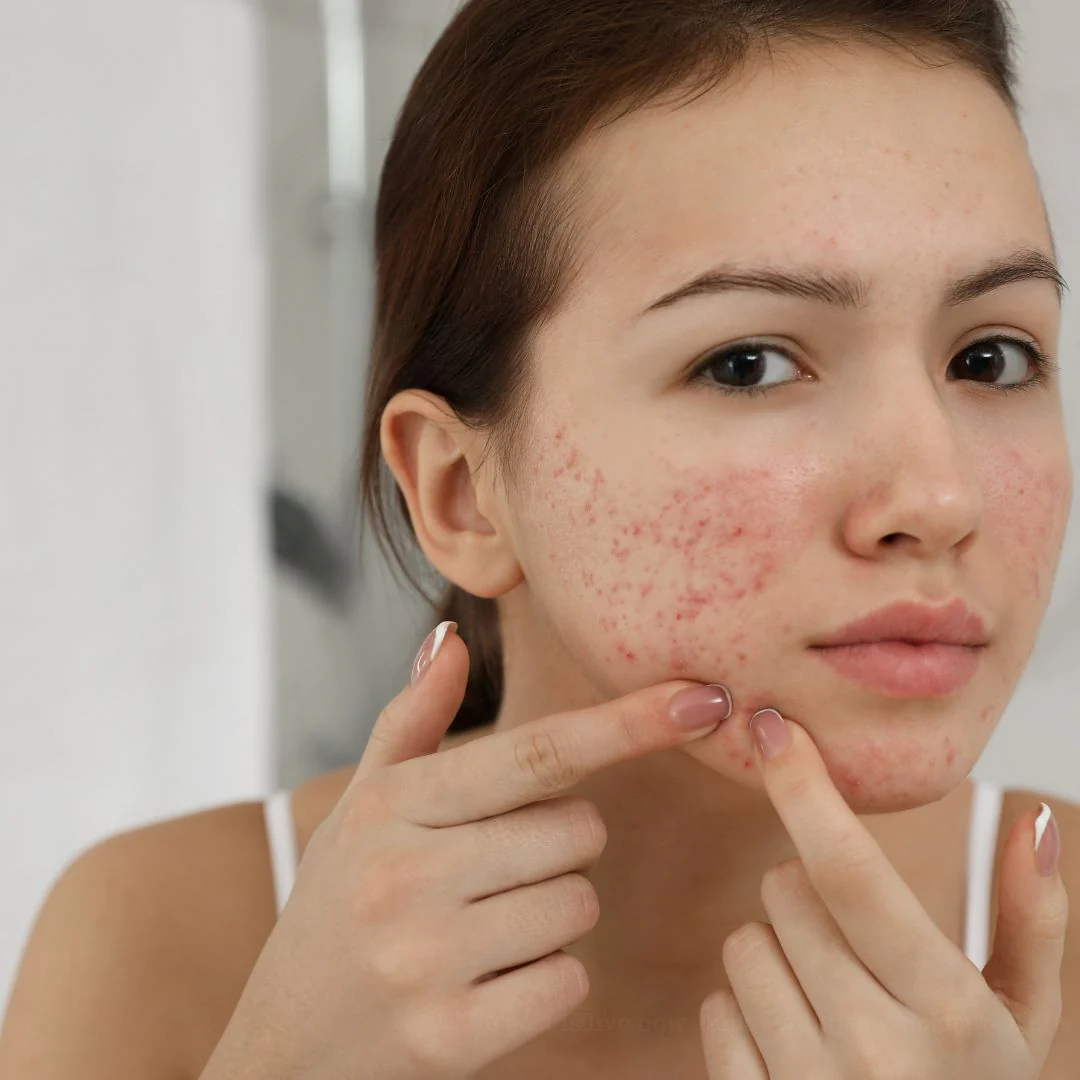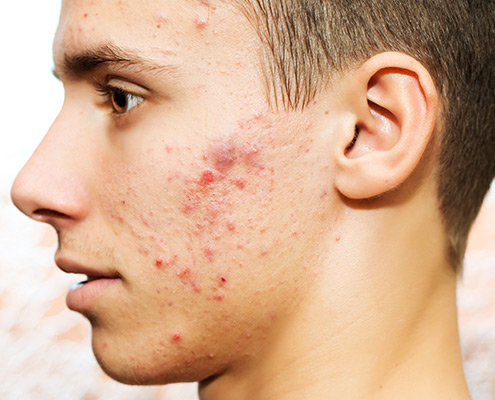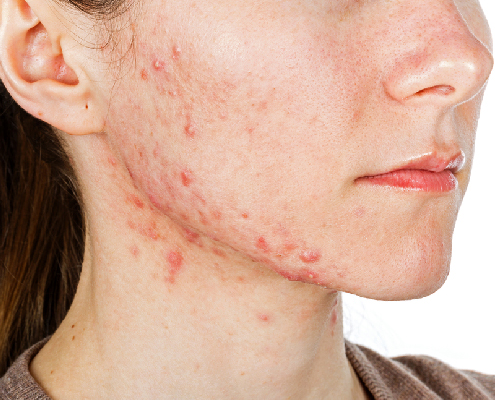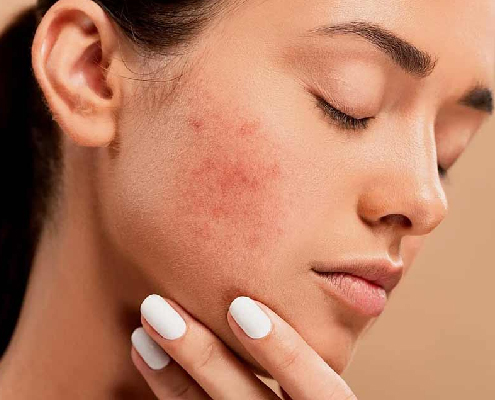
Common Acne Treatments :
- Topical Medications :
- Benzoyl Peroxide : Helps reduce acne-causing bacteria and dries out excess oil.
- Salicylic Acid : Promotes skin exfoliation and unclogs pores.
- Retinoids (e.g., tretinoin) : Encourages faster skin cell turnover to prevent clogged pores.
- Antibiotic Creams : Reduce bacteria and inflammation (e.g., clindamycin).
- Oral Medications :
- Antibiotics : Used for moderate to severe acne to reduce bacteria and inflammation.
- Oral Contraceptives : Can be effective in women by regulating hormones that contribute to acne.
- Isotretinoin (Accutane) : A powerful retinoid for severe, resistant acne. It reduces oil production and can be highly effective.
- In-Office Procedures :
- Chemical Peels : Use of chemical solutions to exfoliate the skin and reduce acne scars.
- Light Therapy : Blue or red light treatments that target acne-causing bacteria.
- Drainage and Extraction : Removes large cysts to relieve discomfort.
- Natural and Over-the-Counter Remedies :
- Tea Tree Oil : Has natural anti-inflammatory and antimicrobial properties.
- Aloe Vera : Can soothe irritated skin.
- OTC Products : Those containing benzoyl peroxide, salicylic acid, or alpha hydroxy acids.
Preventive Measures :
- Gentle Cleansing : Use a mild cleanser twice a day to avoid irritation.
- Avoid Picking or Squeezing Pimples : This can worsen acne and lead to scarring.
- Use Non-Comedogenic Products : These won’t clog pores.
Acne Treatment F&Q
Acne occurs when hair follicles become clogged with oil, dead skin cells, and sometimes bacteria. Hormonal changes, stress, diet, and certain skincare products can also trigger or worsen acne.
It usually takes 4-8 weeks for most acne treatments to show noticeable improvement. Some severe cases may take several months of consistent treatment to see significant results.
Yes, certain foods can exacerbate acne for some people. High-glycemic foods (like sugary snacks) and dairy products are often linked to worsening acne in some individuals. Maintaining a balanced diet may help manage acne.
Combining treatments can be effective but should be done cautiously to avoid skin irritation. It’s best to consult a dermatologist to ensure that the treatments are complementary and safe to use together.
While acne can be effectively managed and controlled, some individuals may experience breakouts occasionally, especially during hormonal changes. Regular maintenance treatments can help keep skin clear.
Some acne treatments, like retinoids or benzoyl peroxide, can cause dryness, redness, or peeling initially. Oral medications like antibiotics may lead to digestive issues, and isotretinoin can have more serious side effects. Consulting a doctor can help mitigate these risks.












